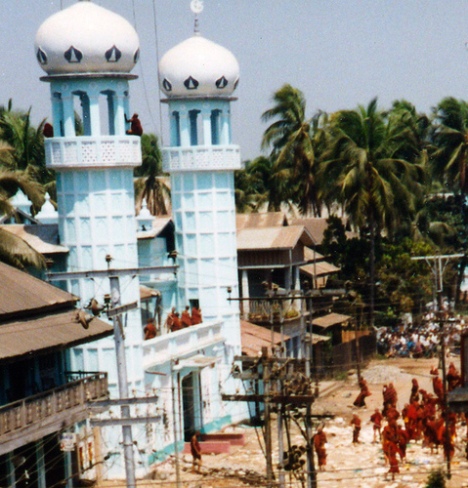Chinese avoid confrontation with authorities.
Are they too clever, selfish or cowards?
Burmese Chinese and Malaysian Chinese are the behaving the same way.
Before reading about Malaysian Chinese in the_THE CHINESE, THEIR HOUSES HAVE NO WINDOWS by a Malaysian banker, please taste back some Burmese Chinese stories/comments.From Irrawady, By Shah Paung November 12, 2007
The junta’s top leader, Snr Gen Than Shwe, is known to despise Muslims and Chinese people who live in Burma. However, most Chinese in Burma are business people and were not directly involved in the September uprising. In Mandalay, home to thousands of Chinese immigrants, most doors remained closed during the protests, a sign that the ethnic Chinese were not in support of the demonstrators. The Muslim minority, on the other hand, played an active part in the pro-democracy demonstrations, just as they have throughout the country’s troubled recent history.
“We cannot say that the demonstrations were not related to Muslims just because they were led by Buddhist monks,” Pan Cha concludes. “We were all born and live in Burma and should not discriminate among each other. We must work together toward democracy.”
Ko Moe Thee Zone’s announcement regarding SPDC crony businessmen
Now, we see the Muslims and Indians participating in the monks led peoples protesting. However, the Chinese seem to be curiously missing – in shape or form – within the context of the current protests.
Are they against the current protests or in support of the protests? Or simply indifferent to any of this since they already have a stronghold over Burma’s economy and anything that takes attention away from them would be positive?
Either way, the bigger question here is not a question of why aren’t the Chinese involved in these protest rather when will the Chinese get involved. The bottom line is why do the minorities, specifically the Chinese and the so called Indians or Muslims, continue to feel disenfranchised?
For Malaysiakini readers :
THE CHINESE, THEIR HOUSES HAVE NO WINDOWS
Saturday, March 29, 2008 at 8:06 PM Posted by jatt
THE CHINESE, THEIR HOUSES HAVE NO WINDOWS
This is a story from a banker (name witheld).*
I looked out the window.
And I saw.
Thousands and thousands of Malays in the Bersih Rally. They were fighting their own kind for a cause they believed in. And they risk being ostracized by their Muslim brothers. And they risk much.
I looked out the window.
And I saw.
Thousands and thousands of Indians holding the picture of Gandhi in the streets. All were teargassed and many beaten with batons. At Batu Caves , they were locked in, pumped with tear gas and sprayed with chemical water. 80 are awaiting trial. 31 are charged for attempted murder of a policeman that attacked them. All their leaders are under ISA. The one that got away fled the country.
I looked out the window.
And I saw.
Thousands and thousands of Chinese closing their doors. Minding their own business. Watching the soap operas. Playing mahjong. Going to the gym. Planning for holidays. Eating bah kuet teh. Enrolling their children in private schools. Going for line dancing. Changing to a bigger car. Perming their hair brown. Going to the movies. Shopping.
The Chinese. They don’t look out the window.
Their houses. Have no windows.
______________________
It is because of 3 generations of ‘keeping quiet’ that we are in a political quagmire of sorts today.
My story may not be the same for others, but it is no doubt a story of 3 generations of political oblivion -a saga of unremitting circumstances that has ‘trained’ us to look the other way – to economic wealth, education and religion. Politics because a ‘dirty word’ in our home; as a Chinese we should disengage ourselves completely from this ‘unproductive’ activity.
This is my story.
My grandfather took a ship to join the gold rush in
San Francisco
around the turn of the last century. Halfway on a Chinese junk, he got sea-sick, so he jumped ship at Singapore .. Traveling up the hinterland, he focused on survival. Hungry from famine in Southern China , he vowed never to be hungry again. Politics was the last thing on his mind. Keeping his belly filled was his only priority. It was an obsession that dictated everything he did.
My father worked for the British. One day, forced by the Japanese to do ‘national service’, he was selected to look after food supplies. The family was starving during the war, so he stole rice under his care and hid them in sweet potatoes when he cooked rice. Our neighbors always thought we were eating sweet potatoes we grew on the fringes of the jungle, when in actual fact, we always had rice.
(As a matter of fact, it is more nutritious to eat sweet potatoes than rice….sweet potatoes, the red variety, has carotenes-vitamin A precursors-other nutrients & fibre. Polished rice has mainly carbohydrate.)
My grandmother sews clothes for the women day and night to survive and got paid in Japanese currency.. When the war was over, these Japanese notes – which were unnumbered – became valueless. The family again struggled to bring food on the table. It was a litany of hunger and fear in our house.
When it came to my generation, my father thought education was the passport to economic freedom for us. He refused for us to be a contractor like him and forced us to study. In university, he forbade me to get involved in politics. He went as far as to refuse me to study law so that I would not get involved in politics. I was forced to study a course I did not like because he wanted me to be a banker.
Needless to say, I made the same mistake when it came to my children. I told them also the ‘passport to heaven’ was also to study. But I refused to dictate what they should study but instead asked them to study what they liked. I ensured they got the best education. I also reminded everyone that they do not talk about politics on the dinner table.
My story is not uncommon; such is the struggle and saga common to thousands of Malaysian homes.
We are cajoled by our parents to look at bread-and butter issues. We are told that politics are not for us. We are told that our ‘houses have no windows’, so mind your own business and close the door. We are told that if this country is not good enough, you must get a good education and emigrate.
The Chinese? We are told this is not our home. We have no home. We are the Jews of the East. When trouble starts, we ought to look the other way. If it gets worse, we emigrate. Money talks. So long we have money, some country will take us.
100 years of ignorance. Is it blissful? No. *It is tragic*.
Credit : Taken from http://groups.google.co.uk/group/sangkancil posted by Mei Joon Quek
Labels: Inside Malaysian Head, Malaysian Politics
1 comments:
-
March 30, 2008 5:47 AM
-
While I agree with the writer that the political activism is not the strong point of the Chinese here, you will note that the election this year showed it is at an embryonic stage at least. We may not be waving placards and throwing rocks in the streets, but the act of voting for the Opposition does constitute political activism on a personal level. And the results are no less astounding.
There are reasons for this state of affairs. Two and an half millenia of Confucian teaching have taught us that us to value social harmony and eschew disorder. In our circumstances, the fires of May 13 have seared into our collective memory that sometimes political victories come at a high cost. So for 40 years, we have learned to get along; we get used to some political power and in return we were granted the right to pursue economic goals. And at every GE since that fateful date, we have marked our ballot papers against the sign of the Dacing, an almost Pavlovian act rather than one of reasoned judgment. And invariably, prior to each GE, we are our fears are stoked by the firebrands in UMNO Youth.
The election this year is a sea change. There are many factors that came into play. But from a personal point of view, the sight of our Minister of Education waving the keris was the straw that broke the came’s back. If the minister could elicit that response from me, the most placid and politically apathetic of people, then I suppose the vast majority of Chinese here would have felt mortally insulted. It made voting Opposition that much easier, something Anwar capitalised on and encouraged.
So while most of us of the older generation will retreat into out comfort zones after doing our duties as citizens, the younger generation will build upon what was achieved. In time, we hope to see them speaking out against injustice as Malaysians and not as members of a racial group. I look forward with optimism.
Please read my contribution in the Wikipedia enclyclopedia to know the basic spyche of Burmese Chinese which shaped the present mindset of Chinese in Myanmar.
In 1962, Ne Win led a coup d’état and declared himself head of state. Although a kabya himself, he banned Chinese-language education, and created other measures to compel the Chinese to leave. Ne Win’s government stoked up racial animosity and ethnic conflicts against the Chinese, who were terrorized by Burmese citizens, the most violent riots taking place at the time of the Cultural Revolution in China.[1] When Ne Win implemented the “Burmese Way to Socialism“, a plan to nationalize all industries, the livelihoods of many entrepreneurial Chinese were destroyed and some 100,000 Chinese left the country.[1] All schools were nationalized, including Chinese-language schools. Beginning in 1967 and continuing throughout the 1970s, anti-Chinese riots continued to flare up and many believed they were covertly supported by the government.[2] Many Burmese Chinese left the country during Ne Win’s rule, largely because of a failing economy and widespread discrimination.
The first government-sponsored racial riots to take place in Burma was in 1967, during General Ne Win‘s rule. In the riots, the general populace went on a killing spree because of sedition and instigation against the Chinese by various government departments. The massacre lasted for about five consecutive days, during which thousands of Chinese died or were left dying in the streets of Rangoon. Some of the Chinese were thrown alive from the second and third floors of buildings in downtown Rangoon. The dead and wounded Chinese were hauled up unceremoniously and dumped onto army trucks and taken to ‘htauk kyan’ incinerators and the ‘carcasses’ were sent up in smoke. That showed the true bestial and cruel side of the character of the ruling Burma Military Junta. The only “crime” the Chinese committed was the wearing of Chairman Mao‘s badges on their shirts.[3][4][5]
Latha Secondary School was torched by the henchmen of General Ne Win’s government, where school girls were burnt alive. Chinese shops were looted and set on fire. Public attention was successfully diverted by Ne Win from the uncontrollable inflation, scarcity of consumer items and rising prices of rice.
References_
- ^ a b c d e Martin Smith (1991). Burma – Insurgency and the Politics of Ethnicity. London,New Jersey: Zed Books, 153-154,225-226,98,39.
- ^ Steinberg, David L. (2002). Burma: The State of Myanmar. Georgetown University Press. ISBN 0-87840-893-2.
- ^ Various Goernment Newspapers in Burma.
- ^ Asia Week, Far Eastern Economic Review.
- ^ Bertil Litner Bangkok Post Thailand
Filed under: 88 Student leaders, CHINA, Chinese Chronicles, culture, Democracy, Democratic activists, democratization, English Article, Islam, Islam in Myanmar, Ko Htun Sein, Ko Mya Aye, Law, Leadership qualities, Malaysia, Malaysiakini | Tagged: Burmese Chinese, Chinese, Malaysian Chinese, Politics | Leave a comment »








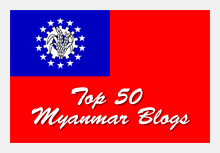
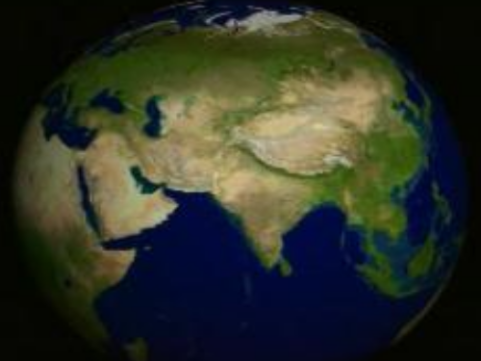

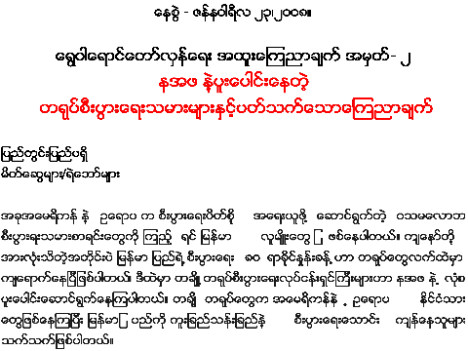
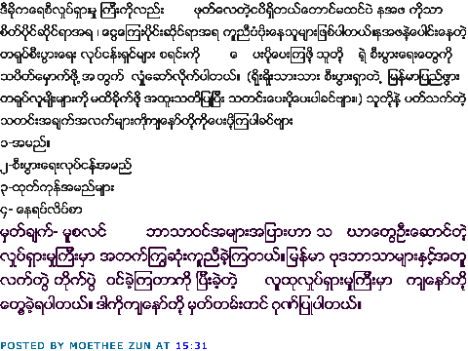
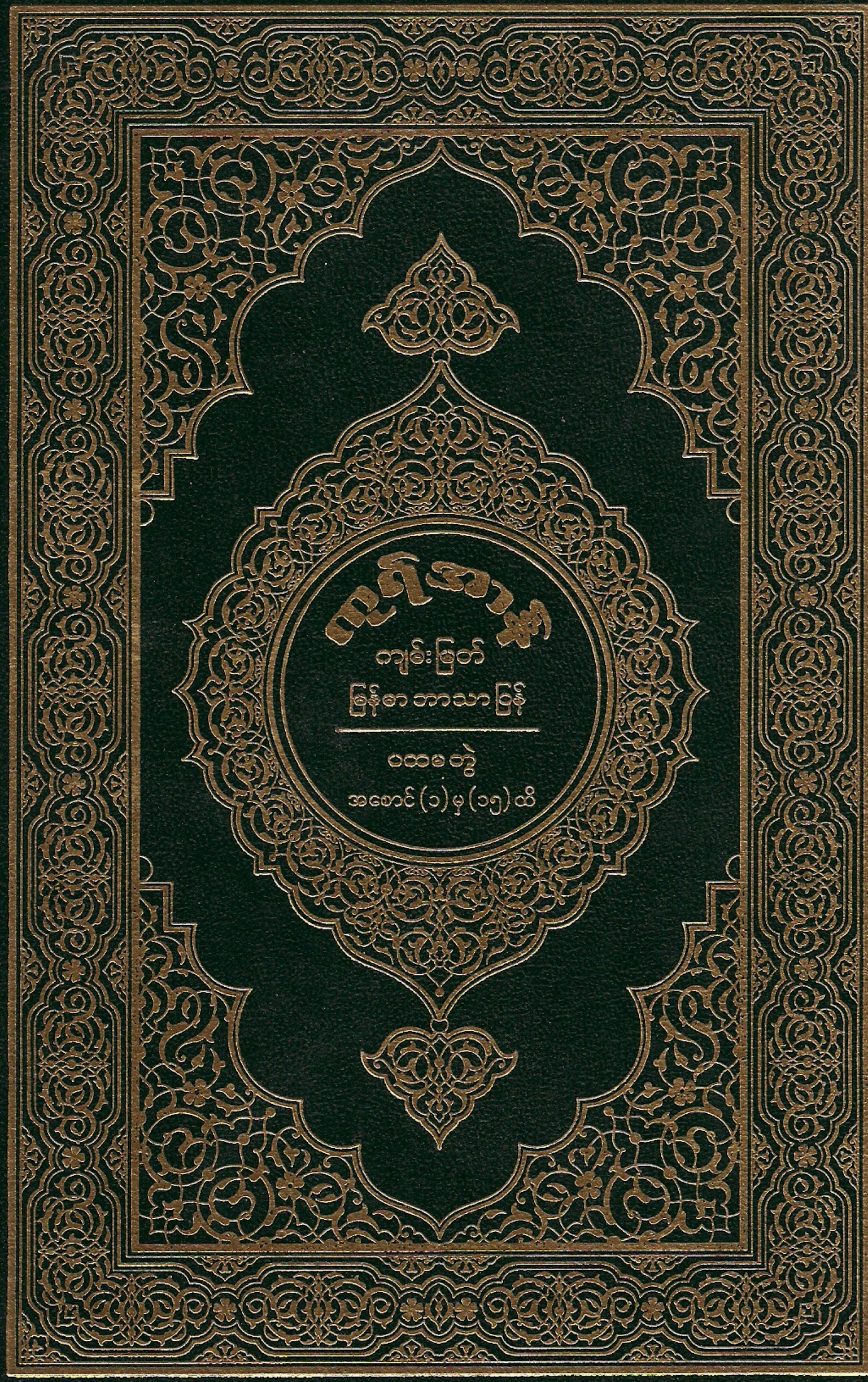
+(Small).jpg)
